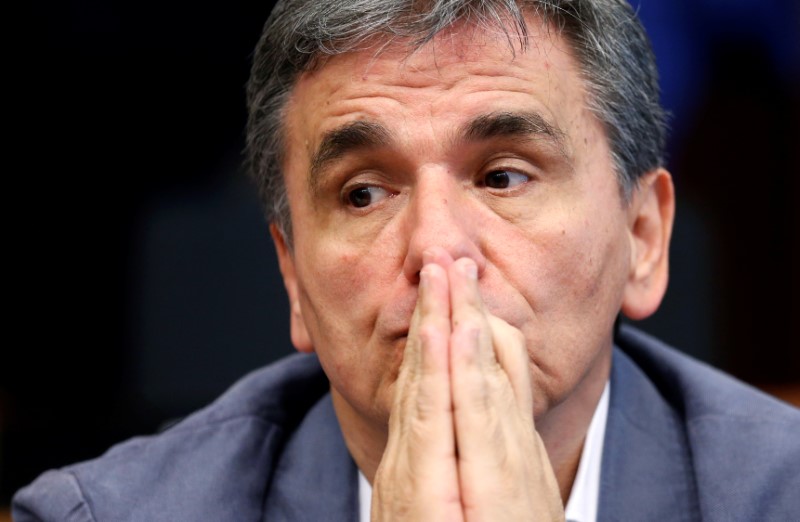By Renee Maltezou
ATHENS (Reuters) - Greece's creditors need to reach a deal on debt relief measures at the next meeting of euro zone finance ministers in June to help the country return to bond markets, its finance minister said on Monday.
Euro zone finance ministers failed to agree with the International Monetary Fund last week on Greek debt relief as well as failing to release new loans to Athens. They did however come close enough to aim to do both at their June meeting.
"The Greek government feels it's done its part of what it promised," Finance Minister Euclid Tsakalotos said, referring to parliamentary approval this month on a package of reforms to be implemented in 2019-20, when its existing bailout expires.
Greece adopted the package to try to coax the IMF into participating in its 86-billion-euro ($96-billion) bailout and to qualify for debt relief. Germany sees IMF buy-in as vital.
"We feel that the ball is very much on the side of our creditors and the IMF, that there are no excuses for not getting this overall deal that the Greek economy so desperately needs in its efforts to access the markets," he said.
"There is very little point in entering a program if the goal is not to leave the program and leaving the program should be not only the responsibility of the debtor country but the creditor countries as well," he told reporters.
Greece wants a deal in June which will allow it to be included in the European Central Bank's (ECB) quantitative easing program, a move which would boost investors confidence in the country before it returns to bond markets with a trial issue.
It wants its lenders to clarify debt relief measures that will be implemented after its program ends in 2018 to provide investors with a clear view on how Greece will service its debt and make it sustainable.
Tsakalotos said there was no reason for delays or a postponement of a deal until after German elections in September, timing that has been widely speculated on.
"What can be done in three months, can be done in 15 days in our view," he said.
He called on the IMF to decide whether to participate in the bailout and said European institutions should "not hide behind the opinions and analyses of other institutions", referring to the ECB's and IMF's debt sustainability analyses.
Asked whether Greece could live with a deal which would secure the disbursement of vital loans needed to repay debt maturing in July, but not a clear debt relief path he said: "We can't accept a deal which is not what was on the table."
But he also ruled out a default, noting that the disbursement of further loans hinged on Greece's reform progress which euro zone finance ministers had already confirmed.
"We are not risking a default, I don't think anybody wants a default. I'm sure that (German Finance Minister) Wolfgang Schaeuble is the last person who would want a Greek default and I am in total agreement with that," he said.
He said that the euro zone would also benefit from a deal that would help Greece return to bond markets.

"We are looking for a good solution, we are not looking for the perfect solution. I am confident we can get a good solution it doesn't have to be the perfect one," he said.